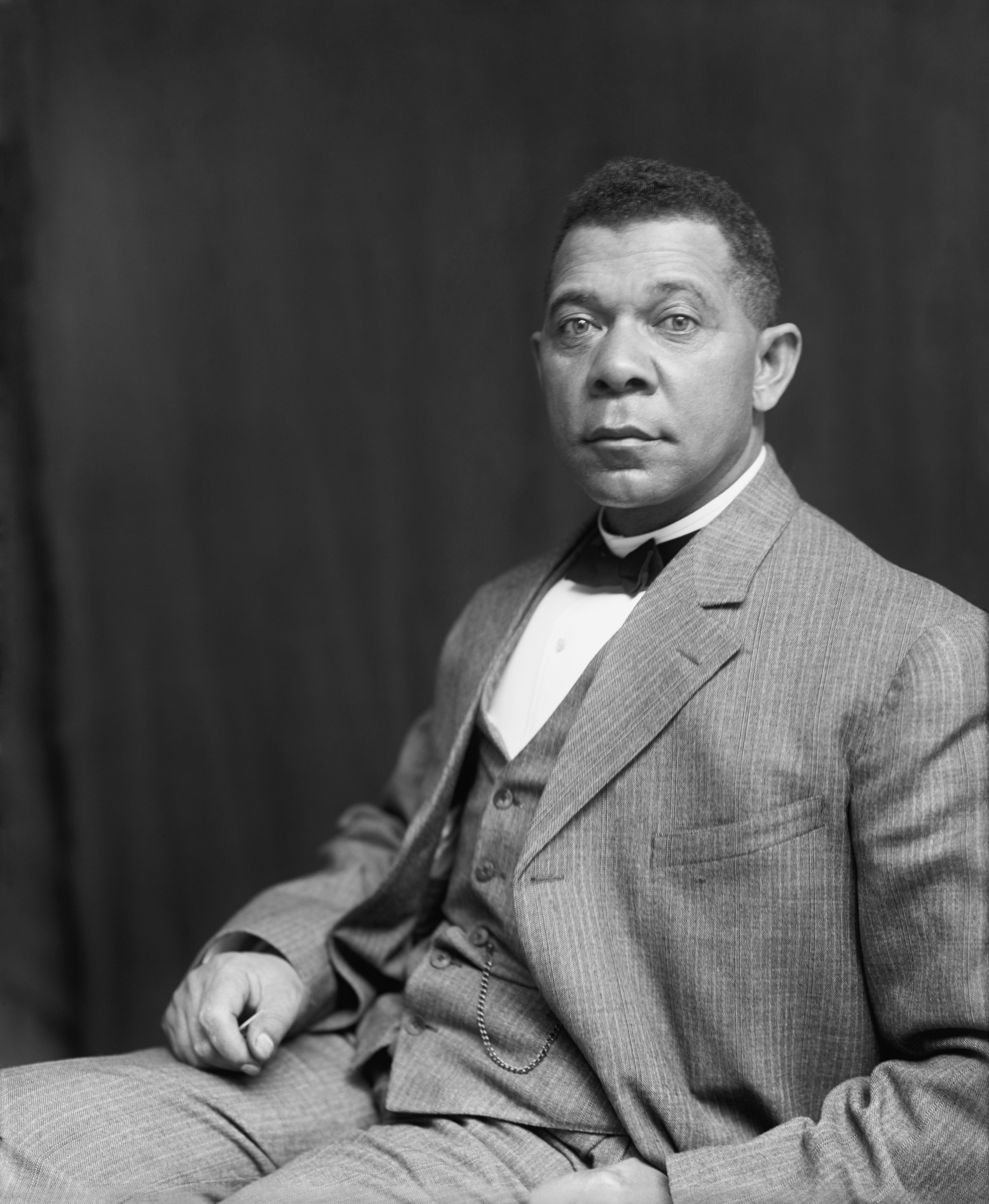Origine: Citato in Julia Butterfly Hill, Ognuno può fare la differenza, traduzione di Isabella Bolech, Corbaccio, Milano, 2002, p. 151. ISBN 88-7972-542-4
Citato anche a p. 183, con traduzione leggermente diversa: «Il successo non si misura dalla posizione che si raggiunge nella vita, ma dagli ostacoli superati mentre si cerca di riuscire».
Booker T. Washington Frasi e Citazioni
Booker T. Washington: Frasi in inglese
Origine: 1900s, Up From Slavery (1901), Chapter XI: Making Their Beds Before They Could Lie On Them
Origine: Up from Slavery
As quoted in speech by Edward de Veaux Morrell https://cdn.loc.gov/service/rbc/lcrbmrp/t2609/t2609.pdf (April 1904)
Variante: In all things that are purely social we can be as separate as the fingers, yet one as the hand in all things essential to mutual progress.
Speech in New York (12 February 1904), as quoted in speech by Edward de Veaux Morrell in the House of Representatives https://cdn.loc.gov/service/rbc/lcrbmrp/t2609/t2609.pdf (4 April 1904)
1900s
An Address on Abraham Lincoln before the Republican Club of New York City (12 February 1909)
“There is no escape — man drags man down, or man lifts man up.”
As quoted in The Great Quotations (1971) edited by George Seldes, p. 366
"Introduction" https://books.google.com/books?id=Ss5tAAAAMAAJ&pg=PA4#v=onepage&q&f=false (1902), Progress of a Race: Or, The Remarkable Advancement of the Afro-American
1900s
This seems to be a paraphrase sumarizing a speech at the Carrie Tuggle Institute, Birmingham, as described in Thinking Black: Some of the Nation's Best Black Columnists Speak Their Mind (1997) by DeWayne Wickham
Misattributed
Origine: 1900s, Up From Slavery (1901), Chapter XVI: Europe
Origine: 1900s, Up From Slavery (1901), Chapter XI: Making Their Beds Before They Could Lie On Them
"The Virtue of Simplicity," from Character Building: Being Addresses Delivered on Sunday Evenings to the Students of Tuskegee Institute (1902), p. 41 http://books.google.com/books?vid=0xSIrRTbnYkF0PDougzpPqX&id=DYYMAAAAIAAJ&pg=PP9&lpg=PP9&dq=%22Character+Building:+Being+Addresses+Delivered%22#PPA41,M1
“Nothing ever comes to me, that is worth having, except as the result of hard work.”
Origine: 1900s, Up From Slavery (1901), Chapter XII: Raising Money
As quoted in Emancipation Proclamation, September 22, 1862 (1919), by E.G. Renesch, Chicago
“Cast down your bucket where you are.”
This address was a speech at the Cotton States and International Exposition, Atlanta (1895-09-18)
Origine: 1900s, Up From Slavery (1901), Chapter XIV: The Atlanta Exposition Address
“I think I have learned that the best way to lift one's self up is to help someone else.”
The Story of My Life and Work, vol. I (1900), ch. XV: Cuban Education and the Chicago Peace Jubilee Address http://web.archive.org/20071031084035/www.historycooperative.org/btw/Vol.1/html/126.html
Origine: 1900s, Up From Slavery (1901), Chapter I: A Slave Among Slaves
